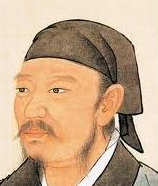
|
Content created: 2011-03-05;
last modified:
Go to China main page, Human Nature Debate |
Go to |


|
In the present selection Master Xún presents a pretty mainline Confucian argument about the importance of a leader’s moral example. However, consistently with his dimmer view of basic human nature (less stridently expressed here), he realistically enough discusses the training and discipline of soldiers, and has few illusions about how to keep their loyalty or, if that fails, at least prevent their running away. A certain amount of killing is part of life in the world of the Warring States, and Xúnzǐ does not shrink from the idea. At the end of this passage, young Lǐ Sī speaks up, expressing his skepticism for the entire Confucian agenda. What is his argument? How persuasively does Xúnzǐ answer it?
The English text presented here is essentially that of Homer H. Dubs (The Works of Hsüntze, London: Probsthain, 1928, Pp. 157-170.) However, after long hesitation, I decided to take extreme liberties with it, not just updating the Romanization of Chinese terms and subdividing it into brief chapters, but occasionally making other changes where the English seemed unclear (or in one case inaccurate). These changes are not marked in the text. I also deleted Dubs’ many, often very informative footnotes. However in some cases I insinuated their clarifications (or my own) into the text using brackets to distinguish them from translation as such.
At the end of chapter eight are links to two interactive review quizzes covering the procursus and this essay.
The principal reason for using Dubs translation at all is that it is out of copyright. If you would like to read more of Xúnzǐ, a far superior rendering by Burton Watson can be found in:
- WATSON, Burton
- 1967 Basic writings of Mo Tzu, Hsün Tzu, and Han Fei Tzu. New York: Columbia University Press.
- WATSON, Burton
- 2003 Xunzi: Basic Writings. New York: Columbia University Press. LC: B128.H68 2003.
Several Internet archives contain reasonably accurate copies of the Chinese text.
Go to Bilingual Layout